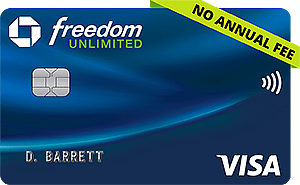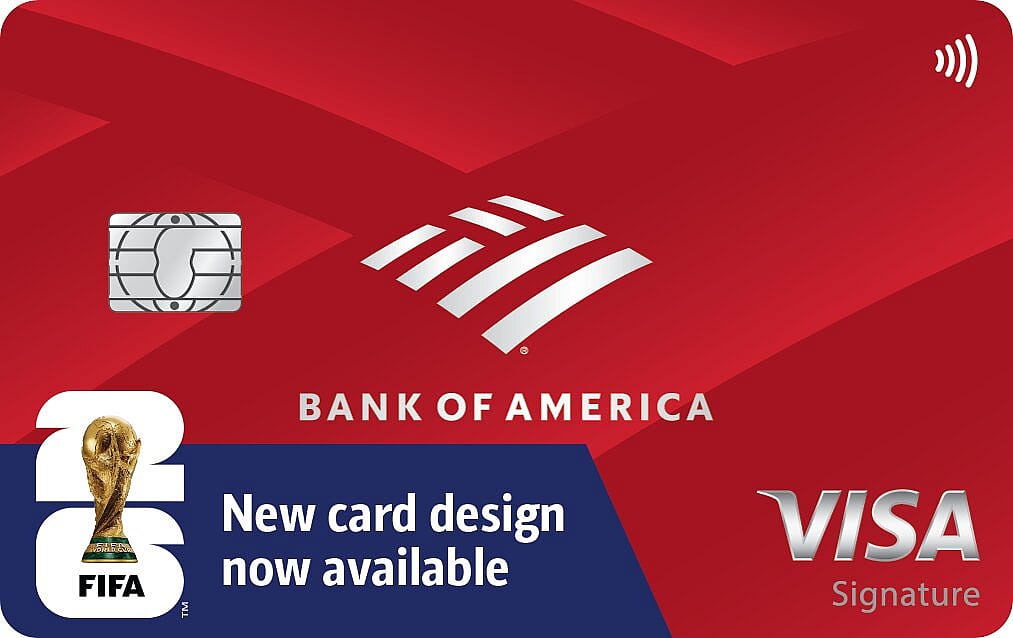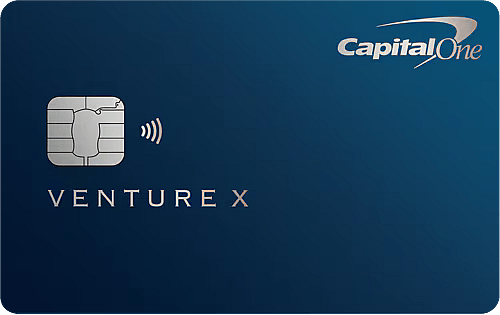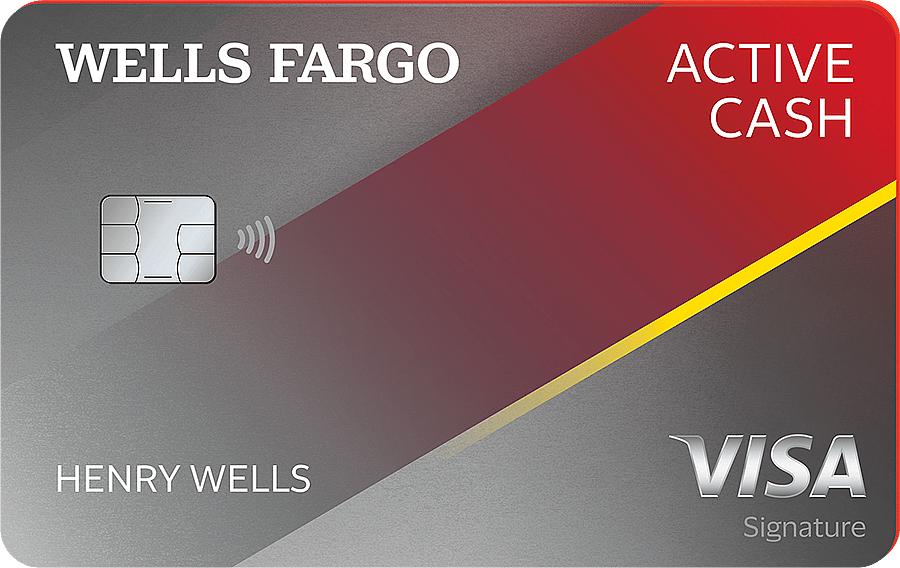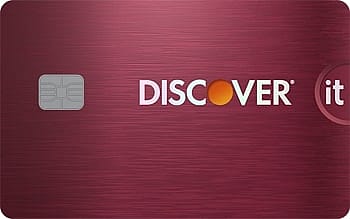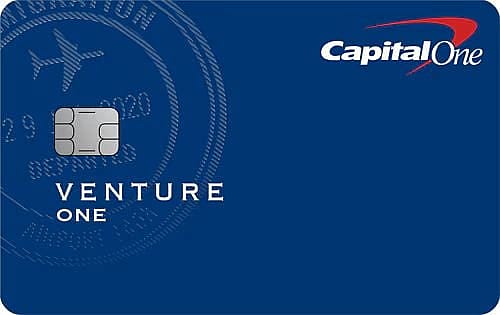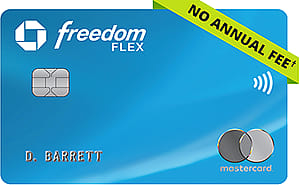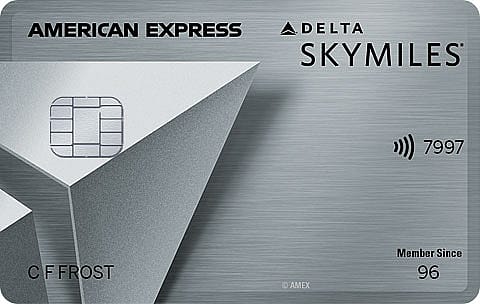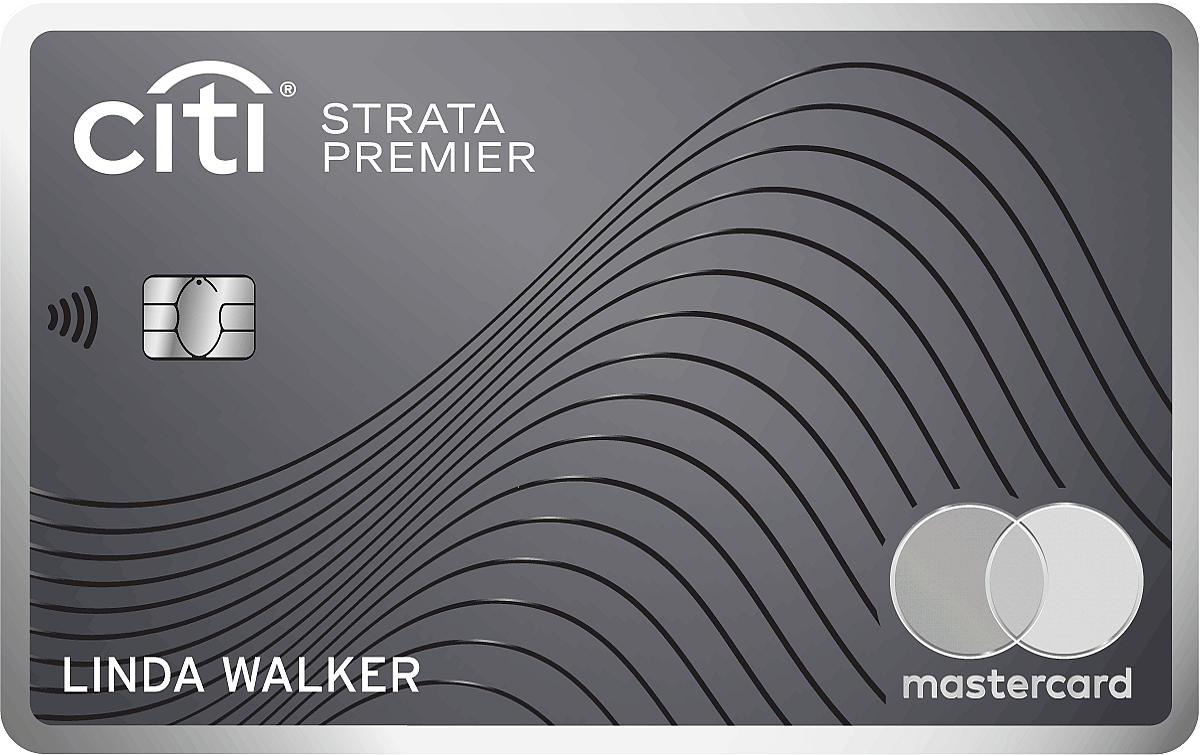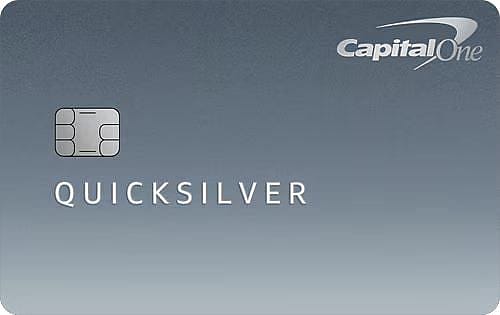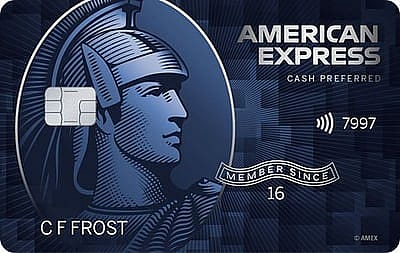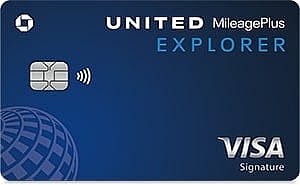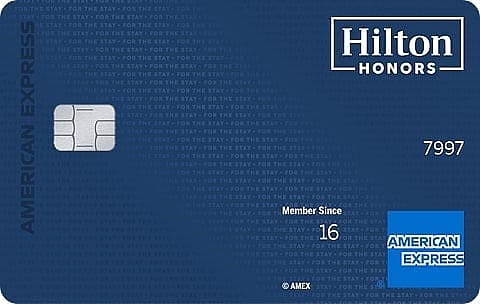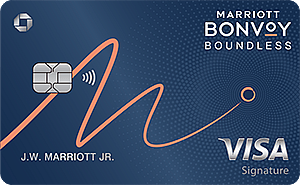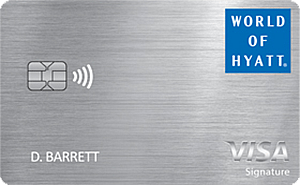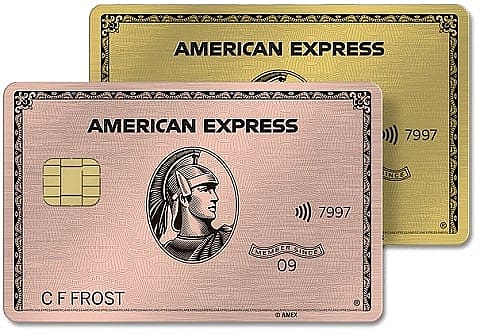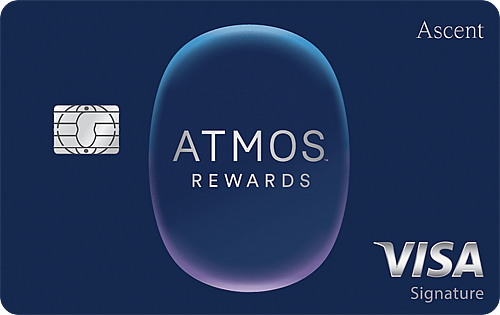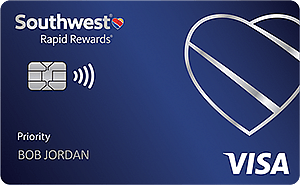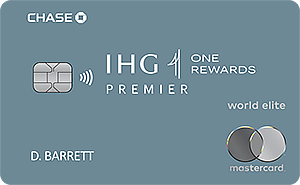Best Credit Card Bonuses for New Cardholders of March 2026
Many or all of the products on this page are from partners who compensate us when you click to or take an action on their website, but this does not influence our evaluations or ratings. Our opinions are our own.
Many or all of the products on this page are from partners who compensate us when you click to or take an action on their website, but this does not influence our evaluations or ratings. Our opinions are our own.
Credit card bonus offers are a quick way to earn hundreds of dollars' worth of rewards by using a new card. The largest bonuses typically come from travel credit cards. Bonuses on cash-back credit cards generally hover in the range of $200, but some cards go even higher. Below are good bonus offers currently available on NerdWallet.
How to evaluate credit card bonus offers
A bonus offer certainly sweetens the deal on a new credit card. Who wouldn’t want a huge stack of cash back or points for "free"? Before you pounce, though, it’s worth pausing to look beyond that big enticing number. Except in rare cases, you don’t get a bonus just for opening a credit card account, so it’s not technically a “sign-up bonus.” Rather, it’s a bonus you can earn after you sign up by using the card for purchases. So a key question is whether you can realistically (and responsibly) spend the required amount within the required time frame to cash in.
Also consider the form your bonus will come in. Is it cash you can use for anything? If it’s points or miles, are you familiar with the loyalty program they’re connected to? If not, how eager are you to learn it in order to redeem your rewards for good value? Keep in mind that if the card comes with an annual fee, that cost effectively comes out of your bonus. And don’t lose sight of the simple fact that getting a credit card bonus requires … getting a credit card. Is this a card you even want or need? Some hardcore rewards maximizers have no problem integrating yet another card into their rotation. For other people, a bonus might not be worth the hassle of another credit line to manage.
How NerdWallet picked these credit card bonus offers
The cards we chose for this page represent a broad array of rewards programs — cash back, airline miles, hotel points and flexible credit card points. There is no single best bonus offer because different people value different kinds of rewards. If you’re a “cash back all the way” kind of person, you have no use for United Airlines miles. If you’re a United flyer, you have no use for Delta miles.
Our selection criteria take into account not only the size of the bonus offer on each card, but also how that bonus fits into the card's ongoing value proposition. For example, a $200 bonus on a card with a $0 annual fee would be considered a better offer than a $200 bonus on a card with a $95 annual fee. And if that $200 bonus required only $500 or $1,000 in spending, it would be superior to an equal bonus that required $3,000 in spending. Meanwhile, a $200 bonus on a card with relatively mundane rewards would be a worse offer than the same size bonus on a card with robust rewards on every purchase.
In other words, it's not just the size of the bonus that matters. (That's still important, though.) Learn more about our picks or see more about our methodology.
Expert tip: Claiming a credit card bonus offer
Sally French, travel writer and co-host of NerdWallet's Smart Travel podcast: “Everyone focuses on the big bonus number ("100,000 points!"), but people often fail to consider the spending requirement that unlocks it. If you have to spend $5,000 in three months to earn those 100,000 points, will you be able to cover that with spending you were going to do anyway? If not, you can end up overextended — carrying debt month to month and paying interest that rapidly drains the value of the bonus. I tell everyone: Never increase your spending just to hit a bonus. The smart move is timing your application around a legitimate expense — like planned travel, big bills or replacing an old refrigerator.”
| Credit card | Rating | Annual fee | Rewards rate | Intro offer | Learn more |
|---|---|---|---|---|---|
Apply Nowon Capital One's website on Capital One's website | Best for Capital One miles | $95 | 2x-5x | $250 Travel Credit + Earn 75K Bonus Miles | Apply Nowon Capital One's website on Capital One's website |
Apply Nowon Chase's website on Chase's website | Best for All-around cash back | $0 | 1.5%-5% | $200 | Apply Nowon Chase's website on Chase's website |
Apply Nowon Bank of America's website on Bank of America's website | Best for Customizable categories + up to 6% in the first year | $0 | 1%-6% | $200 | Apply Nowon Bank of America's website on Bank of America's website |
2026 Best premium travel credit card Apply Nowon Capital One's website on Capital One's website | Best for Premium travel card bonus | $395 | 2x-10x | 75,000 miles | Apply Nowon Capital One's website on Capital One's website |
2026 Best all-purpose cash back credit card Apply Nowon Wells Fargo's website on Wells Fargo's website | Best for Flat-rate cash back | $0 | 2% | $200 | Apply Nowon Wells Fargo's website on Wells Fargo's website |
Apply Nowon Discover's website, on Discover's website, or call 800-347-0264 | Best for Matching cash back bonus | $0 | 1%-5% | Cashback Match™ | Apply Nowon Discover's website, on Discover's website, or call 800-347-0264 |
Apply Nowon Capital One's website on Capital One's website | Best for Fee-averse travelers | $0 | 1.25x-5x | 40,000 miles | Apply Nowon Capital One's website on Capital One's website |
Apply Nowon Chase's website on Chase's website | Best for Quarterly categories + cash bonus | $0 | 1%-5% | $200 | Apply Nowon Chase's website on Chase's website |
2026 Best all-purpose travel rewards credit card Apply Nowon Chase's website on Chase's website | Best for Chase Ultimate Rewards® points | $95 | 1x-5x | 75,000 points | Apply Nowon Chase's website on Chase's website |
Apply Nowon American Express' website on American Express' website | Best for Delta Air Lines | $350 | 1x-3x | Up to 100,000 Miles | Apply Nowon American Express' website on American Express' website |
Apply Nowon Citibank's application on Citibank's application | Best for Citi ThankYou® Points | $95 | 1x-10x | 60,000 points | Apply Nowon Citibank's application on Citibank's application |
Apply Nowon Capital One's website on Capital One's website | Best for Simplicity + intro APR offer | $0 | 1.5%-5% | $200 | Apply Nowon Capital One's website on Capital One's website |
2026 Best credit card for groceries Apply Nowon American Express' website on American Express' website | Best for Families & households | $0 intro annual fee for the first year, then $95. | 1%-6% | As High as $300 cash back. Find Out Your Offer. | Apply Nowon American Express' website on American Express' website |
2026 Best airline credit card Apply Nowon Chase's website on Chase's website | Best for United Airlines | $0 intro for the first year, then $150 | 1x-2x | 70,000 miles | Apply Nowon Chase's website on Chase's website |
Apply Nowon American Express' website on American Express' website | Best for Hilton Hotels | $150 | 3x-12x | 130,000 Points + Free Night Reward | Apply Nowon American Express' website on American Express' website |
2026 Best hotel credit card Apply Nowon Chase's website on Chase's website | Best for Marriott Bonvoy Hotels | $95 | 2x-17x | 5 Free Night Awards | Apply Nowon Chase's website on Chase's website |
Apply Nowon Chase's website on Chase's website | Best for World of Hyatt | $95 | 1x-9x | Up to 60,000 Points | Apply Nowon Chase's website on Chase's website |
Apply Nowon American Express' website on American Express' website | Best for American Express Membership Rewards | $325 | 1x-4x | As High As 100,000 Points. Find Out Your Offer. | Apply Nowon American Express' website on American Express' website |
Apply Nowon Bank of America's website on Bank of America's website | Best for Alaska Airlines | $95 | 1x-3x | 70,000 Points + Companion Fare | Apply Nowon Bank of America's website on Bank of America's website |
Apply Nowon Chase's website on Chase's website | Best for Southwest Airlines | $229 | 1x-4x | Companion Pass + 40,000 Points | Apply Nowon Chase's website on Chase's website |
Apply Nowon Chase's website on Chase's website | Best for IHG Hotels | $99 | 3x-26x | 175,000 points | Apply Nowon Chase's website on Chase's website |
- Bigger bonus offerWhy this card stands out
For a limited time, the Capital One Venture Rewards Credit Card is offering new cardholders an especially rich two-part bonus worth $1,000 in travel. First, there's a $250 credit to use on Capital One Travel in the first cardholder year. Plus, you can earn 75,000 bonus miles once you spend $4,000 on purchases in the first three months you have the card.
Our pick for: Capital One miles
Apply Nowon Capital One's websiteon Capital One's websiteAnnual fee$95Rewards rate2x-5xMilesIntro offer$250 Travel Credit + Earn 75K Bonus MilesRegular APR19.49%-28.49% Variable APRRecommended credit scoreRewards breakdown
5xEarn 5X miles on hotels, vacation rentals and rental cars booked through Capital One Travel.2xMiles on every purchase, every day.Card details
- LIMITED-TIME OFFER: Enjoy $250 to use on Capital One Travel in your first cardholder year, plus earn 75,000 bonus miles once you spend $4,000 on purchases within the first 3 months from account opening - that’s equal to $1,000 in travel
- Earn unlimited 2X miles on every purchase, every day
- Earn 5X miles on hotels, vacation rentals and rental cars booked through Capital One Travel
- Miles won't expire for the life of the account and there's no limit to how many you can earn
- Receive up to a $120 credit for Global Entry or TSA PreCheck®
- Use your miles to get reimbursed for any travel purchase—or redeem by booking a trip through Capital One Travel
- Enjoy a $50 experience credit and other premium benefits with every hotel and vacation rental booked from the Lifestyle Collection
- Transfer your miles to your choice of 15+ travel loyalty programs
- Top rated mobile app
- View Rates & Fees
NerdWallet's take
BONUS OFFER: LIMITED-TIME OFFER: Enjoy $250 to use on Capital One Travel in your first cardholder year, plus earn 75,000 bonus miles once you spend $4,000 on purchases within the first 3 months from account opening - that’s equal to $1,000 in travel.
Read full reviewPros- High rewards rate
- Flexible rewards redemption
Cons- Has annual fee
- Requires good/excellent credit
Our pick for: All-around cash back
Apply Nowon Chase's websiteon Chase's websiteAnnual fee$0Rewards rate1.5%-5%CashbackIntro offer$200Recommended credit scorePurchase intro APR0% intro APR on purchases for 15 monthsBalance transfer intro APR0% intro APR on balance transfers for 15 monthsRegular APR18.24%-27.74% Variable APRRewards breakdown
5%Cash back on travel purchased through Chase Travel℠.3%Cash back on drugstore purchases.3%Cash back on dining at restaurants, including takeout and eligible delivery services.1.5%Cash back on all other purchases.Card details
- Earn a $200 Bonus after you spend $500 on purchases in your first 3 months from account opening
- Enjoy 5% cash back on travel purchased through Chase Travel℠, our premier rewards program that lets you redeem rewards for cash back, travel, gift cards and more; 3% cash back on drugstore purchases and dining at restaurants, including takeout and eligible delivery service, and 1.5% on all other purchases.
- No minimum to redeem for cash back. You can use points to redeem for cash through an account statement credit or an electronic deposit into an eligible Chase account located in the United States!
- Enjoy 0% Intro APR for 15 months from account opening on purchases and balance transfers, then a variable APR of 18.24% - 27.74%.
- No annual fee – You won't have to pay an annual fee for all the great features that come with your Freedom Unlimited® card
- Keep tabs on your credit health, Chase Credit Journey helps you monitor your credit with free access to your latest score, alerts, and more.
- Member FDIC
- View Rates & Fees
NerdWallet's take
BONUS OFFER: Earn a $200 Bonus after you spend $500 on purchases in your first 3 months from account opening.
Read full reviewPros- No annual fee
- Intro APR period
- High rewards rate
- No minimum redemption amount
Cons- Requires good/excellent credit
Our pick for: Customizable categories + up to 6% in the first year
Apply Nowon Bank of America's websiteon Bank of America's websiteAnnual fee$0Rewards rate1%-6%CashbackIntro offer$200Recommended credit scorePurchase intro APR0% intro APR on Purchases for 15 billing cyclesBalance transfer intro APR0% intro APR on Balance Transfers for 15 billing cycles for any balance transfers made in the first 60 daysRegular APR17.49%-27.49% Variable APRRewards breakdown
6%Cash back for the first year in the category of your choice (up to $2,500 in combined choice category/grocery store/wholesale club quarterly purchases).3%Cash back in the category of your choice after the first year (up to $2,500 in combined choice category/grocery store/wholesale club quarterly purchases).2%Cash back at grocery stores and wholesale clubs (up to $2,500 in combined choice category/grocery store/wholesale club quarterly purchases).1%Cash back on all other purchases.Card details
- $200 online cash rewards bonus after you make at least $1,000 in purchases in the first 90 days of account opening.
- Earn 6% cash back for the first year in the category of your choice. You’ll automatically earn 2% cash back at grocery stores and wholesale clubs, and unlimited 1% cash back on all other purchases. After the first year from account opening, you’ll earn 3% cash back on purchases in your choice category.
- Earn 6% and 2% cash back on the first $2,500 in combined purchases each quarter in the choice category, and at grocery stores and wholesale clubs, then earn unlimited 1% thereafter. After the 3% first-year bonus offer ends, you will earn 3% and 2% cash back on these purchases up to the quarterly maximum.
- No annual fee and cash rewards don’t expire as long as your account remains open.
- Select your card design option when you apply – the Customized Cash Rewards design, or the limited-time FIFA World Cup 2026™ design.
- 0% Intro APR for 15 billing cycles for purchases, and for any balance transfers made in the first 60 days. After the Intro APR offer ends, a Variable APR that’s currently 17.49% - 27.49% will apply. A 3% Intro balance transfer fee will apply for the first 60 days your account is open. After the Intro balance transfer fee offer ends, the fee for future balance transfers is 5%. Balance transfers may not be used to pay any account provided by Bank of America.
- This offer may not be available elsewhere if you leave this page. You can take advantage of this offer when you apply now.
NerdWallet's take
BONUS OFFER: $200 online cash rewards bonus after you make at least $1,000 in purchases in the first 90 days of account opening. In addition, the top cash back rate on this card doubles to 6% in the first year.
Read full reviewPros- No annual fee
- New cardholder bonus offer
- Rotating bonus categories
- Relationship rewards for customers
- Intro APR period
Cons- Requires good/excellent credit
- Complicated rewards
- Spending caps on bonus rewards
- Best rewards limited to certain customers
2026 Best premium travel credit card
Apply Nowon Capital One's websiteon Capital One's websiteAnnual fee$395Rewards rate2x-10xMilesIntro offer75,000milesRegular APR19.49%-28.49% Variable APRRecommended credit scoreRewards breakdown
10xMiles on hotels and rental cars booked through Capital One Travel.5xMiles on flights and vacation rentals booked through Capital One Travel.2xMiles on all other purchases.Card details
- Earn 75,000 bonus miles when you spend $4,000 on purchases in the first 3 months from account opening, equal to $750 in travel
- Receive a $300 annual credit for bookings through Capital One Travel, where you'll get Capital One's best prices on thousands of trip options
- Get 10,000 bonus miles (equal to $100 towards travel) every year, starting on your first anniversary
- Earn unlimited 10X miles on hotels and rental cars booked through Capital One Travel and 5X miles on flights and vacation rentals booked through Capital One Travel
- Earn unlimited 2X miles on all other purchases
- Enjoy access to 1,300+ lounges worldwide, including Capital One Lounge and Landing locations and participating Priority Pass lounges, after enrollment
- Use your Venture X miles to easily cover travel expenses, including flights, hotels, rental cars and more—you can even transfer your miles to your choice of 15+ travel loyalty programs
- Enjoy a $100 experience credit and other premium benefits with every hotel and vacation rental booked from the Premier Collection
- Receive up to a $120 credit for Global Entry or TSA PreCheck®
- Top rated mobile app
- View Rates & Fees
NerdWallet's take
BONUS OFFER: Earn 75,000 bonus miles when you spend $4,000 on purchases in the first 3 months from account opening, equal to $750 in travel.
Read full reviewPros- High rewards rate
- New cardholder bonus offer
- Lounge membership
- Anniversary perk
- Flexible rewards redemption
Cons- High annual fee
- Requires excellent credit
2026 Best all-purpose cash back credit card
Apply Nowon Wells Fargo's websiteon Wells Fargo's websiteAnnual fee$0Rewards rate2%CashbackIntro offer$200Recommended credit scorePurchase intro APR0% intro APR for 12 months from account opening on purchasesBalance transfer intro APR0% intro APR for 12 months from account opening on qualifying balance transfersRegular APR18.49%, 24.49%, or 28.49% Variable APRRewards breakdown
2%Unlimited Cash rewards on purchases.Card details
- Apply Now to take advantage of this offer and learn more about product features, terms and conditions.
- Earn a $200 cash rewards bonus after spending $500 in purchases in the first 3 months.
- Earn unlimited 2% cash rewards on purchases.
- 0% intro APR for 12 months from account opening on purchases and qualifying balance transfers. 18.49%, 24.49%, or 28.49% variable APR thereafter; balance transfers made within 120 days qualify for the intro rate and fee of 3% then a BT fee of up to 5%, min: $5.
- $0 annual fee.
- No categories to track or remember and cash rewards don’t expire as long as your account remains open.
- Find tickets to top sports and entertainment events, book travel, make dinner reservations and more with your complimentary 24/7 Visa Signature® Concierge.
- Up to $600 of cell phone protection against damage or theft. Subject to a $25 deductible.
- View Rates & Fees
NerdWallet's take
BONUS OFFER: Earn a $200 cash rewards bonus after spending $500 in purchases in the first 3 months.
Read full reviewPros- High rewards rate
- No annual fee
- Intro APR period
Cons- No bonus categories
Our pick for: Matching cash back bonus
Apply Nowon Discover's website,on Discover's website, or call 800-347-0264Annual fee$0Rewards rate1%-5%CashbackIntro offerCashback Match™Recommended credit scorePurchase intro APR0% intro APR on purchases for 15 monthsBalance transfer intro APR0% intro APR on balance transfers for 15 monthsRegular APR17.49%-26.49% Variable APRRewards breakdown
5%Cash back on everyday purchases at different places you shop each quarter like grocery stores, restaurants, gas stations, and more, up to the quarterly maximum when you activate.1%Cash back on all other purchases.Card details
- INTRO OFFER: Unlimited Cashback Match for all new cardmembers. Discover will automatically match all the cash back you’ve earned at the end of your first year! There’s no minimum spending or maximum rewards. You could turn $150 cash back into $300.
- Earn 5% cash back on everyday purchases at different places you shop each quarter like grocery stores, restaurants, gas stations, and more, up to the quarterly maximum when you activate. Plus, earn unlimited 1% cash back on all other purchases.
- Redeem cash back for any amount. No annual fee.
- Get a 0% intro APR for 15 months on purchases. Then 17.49% to 26.49% Standard Variable Purchase APR applies, based on credit worthiness.
- Terms and conditions apply.
- View Rates & Fees
NerdWallet's take
BONUS OFFER: INTRO OFFER: Unlimited Cashback Match for all new cardmembers. Discover will automatically match all the cash back you’ve earned at the end of your first year! There’s no minimum spending or maximum rewards. You could turn $150 cash back into $300.
Read full reviewPros- No annual fee
- Intro APR period
- Bonus categories
- Cash rewards
Cons- Complicated rewards
- Spending caps on bonus rewards
- Lower acceptance abroad
Our pick for: Fee-averse travelers
Apply Nowon Capital One's websiteon Capital One's websiteAnnual fee$0Rewards rate1.25x-5xMilesIntro offer40,000milesRegular APR18.49%-28.49% Variable APRRecommended credit scoreRewards breakdown
5xMiles on hotels, vacation rentals and rental cars booked through Capital One Travel.1.25xMiles on every purchase, every day.Card details
- Earn a bonus of 40,000 miles once you spend $1,000 on purchases within 3 months from account opening, equal to $400 in travel
- 18.49% - 28.49% variable APR; this product does not have an introductory APR period, 4% fee on amounts transferred at a promotional APR that Capital One may offer you
- $0 annual fee and no foreign transaction fees
- Earn unlimited 1.25X miles on every purchase, every day
- Miles won't expire for the life of the account and there's no limit to how many you can earn
- Earn 5X miles on hotels, vacation rentals and rental cars booked through Capital One Travel
- Use your miles to get reimbursed for any travel purchase—or redeem by booking a trip through Capital One Travel
- Transfer your miles to your choice of 15+ travel loyalty programs
- Top rated mobile app
- View Rates & Fees
NerdWallet's take
BONUS OFFER: Earn a bonus of 40,000 miles once you spend $1,000 on purchases within 3 months from account opening, equal to $400 in travel.
Read full reviewPros- No annual fee
- Flexible rewards redemption
Cons- Rewards have limited flexibility
- Requires good/excellent credit
Our pick for: Quarterly categories + cash bonus
Apply Nowon Chase's websiteon Chase's websiteAnnual fee$0Rewards rate1%-5%CashbackIntro offer$200Recommended credit scorePurchase intro APR0% intro APR on purchases for 15 monthsBalance transfer intro APR0% intro APR on balance transfers for 15 monthsRegular APR18.24%-27.74% Variable APRRewards breakdown
5%Cash back on up to $1,500 in combined purchases in bonus categories each quarter you activate.5%Cash back on travel purchased through Chase Travel℠.3%Cash back on dining.3%Cash back at drugstores.1%Cash back on all other purchases.Card details
- Earn a $200 Bonus after you spend $500 on purchases in your first 3 months from account opening
- 5% cash back on up to $1,500 in combined purchases in bonus categories each quarter you activate. Enjoy new 5% categories each quarter!
- 5% cash back on travel purchased through Chase Travel℠, our premier rewards program that lets you redeem rewards for cash back, travel, gift cards and more
- 3% cash back on drugstore purchases and dining at restaurants, including takeout and eligible delivery service, and unlimited 1% cash back on all other purchases.
- No minimum to redeem for cash back. You can use points to redeem for cash through an account statement credit or an electronic deposit into an eligible Chase account located in the United States.
- 0% Intro APR for 15 months from account opening on purchases and balance transfers, then a variable APR of 18.24% - 27.74%.
- No annual fee – You won't have to pay an annual fee for all the great features that come with your Freedom Flex® card
- Keep tabs on your credit health - Chase Credit Journey helps you monitor your credit with free access to your latest score, real-time alerts, and more.
- Member FDIC
- View Rates & Fees
NerdWallet's take
BONUS OFFER: This card offers a competitive cash bonus for hitting a spending threshold that most households should be able to reach fairly easily.
Read full reviewPros- No annual fee
- New cardholder bonus offer
- Bonus categories
- Cash rewards
- Intro APR period
Cons- Requires good/excellent credit
- Complicated rewards
2026 Best all-purpose travel rewards credit card
Apply Nowon Chase's websiteon Chase's websiteAnnual fee$95Rewards rate1x-5xPointsIntro offer75,000pointsRegular APR19.24%-27.49% Variable APRRecommended credit scoreRewards breakdown
5xPoints on travel purchased through Chase Travel℠.3xPoints on dining.3xPoints on select streaming services.3xPoints on online groceries.2xPoints on all other travel purchases.1xPoint on all other purchases.Card details
- Earn 75,000 bonus points after you spend $5,000 on purchases in the first 3 months from account opening.
- Enjoy benefits such as 5x on travel purchased through Chase Travel℠, 3x on dining, select streaming services and online groceries, 2x on all other travel purchases, 1x on all other purchases
- Earn up to $50 in statement credits each account anniversary year for hotel stays through Chase Travel℠
- 10% anniversary points boost - each account anniversary you'll earn bonus points equal to 10% of your total purchases made the previous year.
- Count on Trip Cancellation/Interruption Insurance, Auto Rental Collision Damage Waiver, Lost Luggage Insurance and more.
- Complimentary DashPass which unlocks $0 delivery fees & lower service fees for a min. of one year when you activate by 12/31/27. Plus, a $10 promo each month on non-restaurant orders.
- Member FDIC
- View Rates & Fees
NerdWallet's take
BONUS OFFER: Earn 75,000 bonus points after you spend $5,000 on purchases in the first 3 months from account opening.
Read full reviewPros- New cardholder bonus offer
- Bonus categories
- Primary rental car coverage
- Flexible rewards redemption
- Transfer partners
Cons- Has annual fee
- Requires good/excellent credit
- Complicated rewards
Our pick for: Delta Air Lines
Apply Nowon American Express' websiteon American Express' websiteAnnual fee$350Rewards rate1x-3xMilesIntro offerUp to 100,000 MilesAPR19.49%-28.49% Variable APRRecommended creditRewards breakdown
3xMiles on Delta purchases.3xMiles on purchases made directly with hotels.2xMiles at restaurants worldwide including takeout and delivery in the U.S.2xMiles at U.S. supermarkets.1xMile on all other eligible purchases.Card details
- Earn 80,000 Bonus Miles after you spend $4,000 or more in purchases with your new Card within the first 6 months of Card Membership and an additional 20,000 bonus miles after you make an additional $2,000 in purchases on the Card within your first 6 months, starting from the date that your account is opened. Offer Ends 04/01/2026.
- Receive a Companion Certificate on a Delta Main round-trip flight to select destinations each year after renewal of your Card. The Companion Certificate requires payment of government-imposed taxes and fees of between $22 and $250 (for itineraries with up to four flight segments). Baggage charges and other restrictions apply. Delta Basic experiences are not eligible for this benefit.
- Receive $2,500 Medallion® Qualification Dollars with MQD Headstart each Medallion Qualification Year and earn $1 MQD for each $20 in purchases on your Delta SkyMiles® Platinum American Express Card with MQD Boost to get closer to Status next Medallion Year.
- Delta SkyMiles® Platinum American Express Card Members get 15% off when using miles to book Award Travel on Delta flights through delta.com and the Fly Delta app. Discount not applicable to partner-operated flights or to taxes and fees.
- Earn 3X Miles on Delta purchases and purchases made directly with hotels.
- Earn 2X Miles at restaurants worldwide including takeout and delivery in the U.S., and at U.S. supermarkets.
- Earn 1X Miles on all other eligible purchases.
- $120 Resy Credit: Get up to $10 in statement credits each month after you pay with your enrolled Delta SkyMiles® Platinum American Express Card to dine at U.S. Resy restaurants or make other eligible Resy purchases.
- $120 Rideshare Credit: earn up to $10 in statement credits each month after using your Delta SkyMiles® Platinum American Express Card on U.S. rideshare purchases with select providers. Enrollment required.
- Enjoy your first checked bag free on Delta flights and save up to $70 per person on a round-trip Delta flight.
- Receive either a $120 statement credit every 4 years for a Global Entry application fee or a statement credit up to $85 every 4.5 years for a TSA PreCheck® (through a TSA official enrollment provider) application fee, when charged to your Delta SkyMiles® Platinum American Express Card. Card Members approved for Global Entry will also receive access to TSA PreCheck at no additional cost.
- Delta SkyMiles® Platinum American Express Card Members with an eligible ticket will be added to the Complimentary Upgrade list, after Delta SkyMiles Medallion Members and Reserve Card Members.
- No Foreign Transaction Fees.
- $350 Annual Fee.
- Apply with confidence. Know if you're approved for a Card with no impact to your credit score. If you're approved and you choose to accept this Card, your credit score may be impacted.
- Terms Apply.
- View Rates & Fees
NerdWallet's take
BONUS OFFER: Earn 80,000 Bonus Miles after you spend $4,000 in purchases with your new Card, and an additional 20,000 bonus miles after you make an additional $2,000 in purchases on the Card, both within your first 6 months. Ends 04/01/2026. Terms Apply.
Read full reviewPros- Free checked bag
- Early boarding
- Companion benefit
Cons- Has annual fee
- Requires good/excellent credit
Our pick for: Citi ThankYou® Points
Apply Nowon Citibank's applicationon Citibank's applicationAnnual fee$95Rewards rate1x-10xPointsIntro offer60,000pointsRegular APR19.49%-27.49% Variable APRRecommended credit scoreRewards breakdown
10xPoints per $1 spent on Hotels, Car Rentals, and Attractions booked on CitiTravel.com.3xPoints per $1 on Air Travel.3xPoints per $1 on Hotels.3xPoints per $1 spent at Supermarkets.3xPoints per $1 spent at Gas Stations.3xPoints per $1 spent at Restaurants.1xPoint per $1 spent on all other purchases.Card details
- Earn 60,000 bonus ThankYou® Points after spending $4,000 in the first 3 months of account opening, redeemable for $600 in gift cards or travel rewards at thankyou.com.
- Earn 10 Points per $1 spent on Hotels, Car Rentals, and Attractions booked on CitiTravel.com.
- Earn 3 Points per $1 on Air Travel and Other Hotel Purchases, at Restaurants, Supermarkets, Gas and EV Charging Stations.
- Earn 1 Point per $1 spent on all other purchases
- $100 Annual Hotel Benefit: Once per calendar year, enjoy $100 off a single hotel stay of $500 or more (excluding taxes and fees) when booked through CitiTravel.com. Benefit applied instantly at time of booking.
- No expiration and no limit to the amount of points you can earn with this card
- No Foreign Transaction Fees on purchases
- View Rates & Fees
NerdWallet's take
BONUS OFFER: Earn 60,000 bonus ThankYou® Points after spending $4,000 in the first 3 months of account opening, redeemable for $600 in gift cards or travel rewards at thankyou.com.
Read full reviewPros- Bonus categories
- Rewards don't expire
Cons- Has annual fee
- Requires good/excellent credit
Our pick for: Simplicity + intro APR offer
Apply Nowon Capital One's websiteon Capital One's websiteAnnual fee$0Rewards rate1.5%-5%CashbackIntro offer$200Recommended credit scorePurchase intro APR0% intro on purchases for 15 monthsBalance transfer intro APR0% intro on balance transfers for 15 months; balance transfer fee appliesRegular APR18.49%-28.49% Variable APRRewards breakdown
5%Cash back on hotels, vacation rentals and rental cars booked through Capital One Travel.1.5%Cash back on every purchase, every day.Card details
- Earn a one-time $200 cash bonus after you spend $500 on purchases within 3 months from account opening
- Earn unlimited 1.5% cash back on every purchase, every day
- $0 annual fee and no foreign transaction fees
- Earn unlimited 5% cash back on hotels, vacation rentals and rental cars booked through Capital One Travel
- No rotating categories or sign-ups needed to earn cash rewards; plus, cash back won't expire for the life of the account and there's no limit to how much you can earn
- 0% intro APR on purchases and balance transfers for 15 months; 18.49% - 28.49% variable APR after that; balance transfer fee applies
- Top rated mobile app
- View Rates & Fees
NerdWallet's take
BONUS OFFER: Earn a one-time $200 cash bonus after you spend $500 on purchases within 3 months from account opening.
Read full reviewPros- No annual fee
- High rewards rate
- Intro APR period
- No foreign transaction fees
Cons- Requires good/excellent credit
- No bonus categories
2026 Best credit card for groceries
Apply Nowon American Express' websiteon American Express' websiteAnnual fee$0 intro annual fee for the first year, then $95.Rewards rate1%-6%CashbackIntro offerAs High as $300 cash back. Find Out Your Offer.Recommended creditPurchase intro APR0% intro APR on purchases for 12 months from the date of account openingBalance transfer intro APR0% intro APR on balance transfers for 12 months from the date of account openingAPR19.49%-28.49% Variable APRRewards breakdown
6%Cash Back at U.S. supermarkets on up to $6,000 per year in purchases (then 1%).6%Cash Back on select U.S. streaming subscriptions.3%Cash Back at U.S. gas stations and on transit (including taxis/rideshare, parking, tolls, trains, buses and more).1%Cash Back on other purchases.Card details
- Apply and find out your welcome offer. As High As $300 cash back* after you spend $3,000 in purchases on your new Card within the first 6 months of Card Membership. Welcome offers vary and you may not be eligible for an offer. Apply, and if approved: 1. Find out your offer amount 2. Accept the Card with your offer 3. Spend $3,000 in 6 months 4. Receive the cash back. *Cash back is received in the form of Reward Dollars that can be redeemed for a statement credit or at Amazon.com checkout.
- $0 intro annual fee for the first year, then $95.
- Enjoy 0% intro APR on purchases and balance transfers for 12 months from the date of account opening. After that, your APR will be a variable APR of 19.49%-28.49%.
- Plan It®: Buy now, pay later with Plan It. Split purchases of $100 or more into equal monthly installments with a fixed fee so you don’t have the pressure of paying all at once. Simply select the purchase in your online account or the American Express® App to see your plan options. Plus, you’ll still earn rewards on purchases the way you usually do.
- Earn 6% cash back at U.S. supermarkets on up to $6,000 per year in eligible purchases (then 1%), 6% cash back on select U.S. streaming subscriptions, 3% cash back at eligible U.S. gas stations and on transit (including taxis/rideshare, parking, tolls, trains, buses and more) purchases and 1% cash back on other purchases. Cash Back is received in the form of Reward Dollars that can be redeemed as a statement credit and at Amazon.com checkout.
- Get up to a $10 monthly statement credit after using your enrolled Blue Cash Preferred® Card for a subscription purchase, including a bundle subscription purchase, at DisneyPlus.com, Hulu.com, or Stream.ESPN.com U.S. websites. Subject to auto-renewal.
- Terms Apply.
- View Rates & Fees
NerdWallet's take
BONUS OFFER: You may be eligible for as high as $300 cash back after spending $3,000 in purchases on your new Card in the first 6 months. Welcome offers vary and you may not be eligible for an offer. Cash back is received as Reward Dollars, redeemable for statement credit or at Amazon.com checkout. Terms Apply.
Read full reviewPros- High rewards rate
- Bonus categories
- Intro APR period
- Cash rewards
Cons- Has annual fee
- Requires good/excellent credit
- Spending caps on bonus rewards
2026 Best airline credit card
Apply Nowon Chase's websiteon Chase's websiteAnnual fee$0 intro for the first year, then $150Rewards rate1x-2xMilesIntro offer70,000milesRegular APR19.74%-28.24% Variable APRRecommended credit scoreRewards breakdown
2xMiles on United® purchases2xMiles per $1 spent on dining.2xMiles per $1 spent on hotel stays when booked with the hotel.1xMile per $1 spent on all other purchases.Card details
- Earn 70,000 bonus miles
- $0 introductory annual fee for the first year, then $150
- 2x miles on United® purchases, dining, and hotel stays when booked with the hotel
- Free first checked bag - a savings of up to $160 per roundtrip. Terms Apply.
- Priority boarding on United® flights
- 2 United Club one-time passes per year - over a $100 value
- Over $500 in partner credits each year
- Up to $120 Global Entry, TSA PreCheck® or NEXUS fee credit
- Member FDIC
- View Rates & Fees
NerdWallet's take
BONUS OFFER: Earn 70,000 bonus miles after you spend $3,000 on purchases in the first 3 months your account is open.
Read full reviewPros- Bonus categories
- Luxury perks
- New cardholder bonus offer
- Free checked bag
Cons- Has annual fee
- Rewards have limited flexibility
Our pick for: Hilton Hotels
Apply Nowon American Express' websiteon American Express' websiteAnnual fee$150Rewards rate3x-12xPointsIntro offer130,000 Points + Free Night RewardAPR19.49%-28.49% Variable APRRecommended creditRewards breakdown
12xPoints for each dollar of eligible purchases charged on your Card directly with hotels and resorts within the Hilton portfolio.6xPoints for each dollar of eligible purchases on your Card at U.S. restaurants.6xPoints for each dollar of eligible purchases on your Card at U.S. supermarkets.6xPoints for each dollar of eligible purchases on your Card at U.S. gas stations.4xPoints for each dollar of eligible purchases on your Card at U.S. Online Retail Purchases.3xPoints for all other eligible purchases on your Card.Card details
- Earn 130,000 Bonus Points plus a Free Night Reward after you spend $3,000 in purchases on the Card in the first 6 months of Card Membership. Offer Ends 4/15/2026.
- Enjoy complimentary Hilton Honors™ Gold status with your Card. Plus, spend $40,000 on eligible purchases on your Card in a calendar year and you can earn an upgrade to Hilton Honors Diamond status through the end of the next calendar year. Terms and Limitations apply.
- Get up to $50 in statement credits each quarter for purchases made directly with a property in the Hilton portfolio on your Hilton Honors American Express Surpass® Card. That’s up to $200 in statement credits annually.
- Earn a Free Night Reward from Hilton Honors after you spend $15,000 on eligible purchases on your Card in a calendar year.
- Earn 12X Hilton Honors Bonus Points for each dollar of eligible purchases charged on your Card directly with a hotel or resort within the Hilton portfolio.
- Earn 6X Points for each dollar of purchases on your Card at U.S. restaurants, at U.S. supermarkets, and at U.S. gas stations.
- Earn 4X Points for each dollar on U.S. Online Retail Purchases.
- Earn 3X Points for all other eligible purchases on your Card.
- As a Hilton Honors American Express Surpass® Card Member, you can enroll to receive complimentary National Car Rental® Emerald Club Executive® status through the link on your American Express online account. After you’re enrolled, you can reserve a rental car by calling National Car Rental directly, using your travel service, or by booking online or through the National Car Rental mobile app. Terms apply.
- No Foreign Transaction Fees. Enjoy international travel without additional fees on purchases made abroad.
- Whenever you travel more than 100 miles from home, Global Assist® Hotline is available for 24/7 emergency assistance and coordination services, including medical and legal referrals, emergency cash wires, and missing luggage assistance. Card Members are responsible for the costs charged by third-party service providers. Other terms and conditions apply.
- Pay It Plan It®: Pay It® lets you tap in the American Express® App to quickly pay for small purchase amounts throughout the month and still earn rewards the way you usually do. Plan It® gives you the option to split up big purchases into equal monthly payments with a fixed fee. You’ll know upfront exactly how much you’ll pay.
- Points don’t expire while your Hilton Honors American Express Surpass® Card is active and in good standing.
- $150 annual fee.
- Apply with confidence. Know if you're approved for a Card with no impact to your credit score. If you're approved and you choose to accept this Card, your credit score may be impacted.
- Terms Apply.
- View Rates & Fees
NerdWallet's take
BONUS OFFER: Earn 130,000 Bonus Points plus a Free Night Reward after you spend $3,000 in purchases on the Card in the first 6 months of Card Membership. Offer Ends 4/15/2026. Terms Apply.
Read full reviewPros- High rewards rate
- Automatic elite status
- Luxury perks
Cons- Has annual fee
- No free anniversary night
2026 Best hotel credit card
Apply Nowon Chase's websiteon Chase's websiteAnnual fee$95Rewards rate2x-17xPointsIntro offer5 Free Night AwardsRegular APR19.24%-27.74% Variable APRRecommended credit scoreRewards breakdown
17xUp to 17x total points for every $1 spent at thousands of hotels participating in Marriott Bonvoy®.3xPoints per $1 on the first $6,000 spent in combined purchases annually on grocery stores, gas stations, and dining.2xPoints for every $1 spent on all other purchases.Card details
- Our best offer is back and better than ever! Earn 5 Free Night Awards (each night valued up to 50,000 points) after qualifying purchases.
- 2026 Exclusive Offer: Get up to $100 in statement credits after spending $500 on eligible airline purchases. That's up to $50 in statement credits semi-annually.
- Earn 3X points per $1 on the first $6,000 spent in combined purchases annually on grocery stores, gas stations, and dining.
- Earn 1 Elite Night Credit towards Elite Status for every $5,000 you spend.
- 1 Free Night Award (valued up to 35,000 points) every year after account anniversary.
- Earn up to 17X total points per $1 spent at thousands of hotels participating in Marriott Bonvoy® with the Marriott Bonvoy Boundless® Card.
- Receive 15 Elite Night Credits annually, automatic Silver Elite status, and path to Gold Status when you spend $35,000 on purchases each calendar year.
- No Foreign Transaction Fees. Your points don't expire as long as you make purchases on your card every 24 months.
- Member FDIC
- View Rates & Fees
NerdWallet's take
BONUS OFFER: Earn 5 Free Night Awards (each night valued up to 50,000 points) after spending $3,000 on eligible purchases within 3 months of account opening with the Marriott Bonvoy Boundless® Credit Card. Certain hotels have resort fees.
Read full reviewPros- Anniversary perk
- High rewards rate
- Automatic elite status
Cons- Has annual fee
- Rewards have limited flexibility
Our pick for: World of Hyatt
Apply Nowon Chase's websiteon Chase's websiteAnnual fee$95Rewards rate1x-9xPointsIntro offerUp to 60,000 PointsRegular APR19.24%-27.74% Variable APRRecommended credit scoreRewards breakdown
9xPoints total for Hyatt stays – 4 Bonus Points per $1 spent on qualified purchases at Hyatt hotels & up to 5 Base Points per $1 from Hyatt as a World of Hyatt member.2xPoints per $1 spent at restaurants, on airlines tickets purchased directly from the airlines, on local transit and commuting and on fitness club and gym memberships.1xPoint spent on all other purchases.Card details
- Earn up to 60,000 Bonus Points. Earn 30,000 Bonus Points after you spend $3,000 on purchases in your first 3 months from account opening. Plus, up to 30,000 more Bonus Points by earning 2 Bonus Points total per $1 spent in the first 6 months from account opening on purchases that normally earn 1 Bonus Point, on up to $15,000 spent.
- Enjoy complimentary World of Hyatt Discoverist status for as long as your account is open.
- Get 1 free night each year after your Cardmember anniversary at any Category 1-4 Hyatt hotel or resort
- Receive 5 tier qualifying night credits towards status after account opening, and each year after that for as long as your account is open
- Earn an extra free night at any Category 1-4 Hyatt hotel if you spend $15,000 in a calendar year
- Earn 2 qualifying night credits towards tier status every time you spend $5,000 on your card
- Earn up to 9 points total for Hyatt stays – 4 Bonus Points per $1 spent on qualified purchases at Hyatt hotels & up to 5 Base Points per $1 from Hyatt as a World of Hyatt member
- Earn 2 Bonus Points per $1 spent at restaurants, on airline tickets purchased directly from the airlines, on local transit and commuting and on fitness club and gym memberships
- Member FDIC
- View Rates & Fees
NerdWallet's take
BONUS OFFER: Earn up to 60,000 Bonus Points. Earn 30,000 Bonus Points after you spend $3,000 on purchases in your first 3 months from account opening. Plus, up to 30,000 more Bonus Points by earning 2 Bonus Points total per $1 spent in the first 6 months from account opening on purchases that normally earn 1 Bonus Point, on up to $15,000 spent.
Read full reviewPros- New cardholder bonus offer
- Automatic free night annually
- Bonus categories
- Luxury perks
Cons- Has annual fee
- Complicated rewards
- Limited redemptions
Our pick for: American Express Membership Rewards
Apply Nowon American Express' websiteon American Express' websiteAnnual fee$325Rewards rate1x-4xPointsIntro offerAs High As 100,000 Points. Find Out Your Offer.APRSee Pay Over Time APRRecommended creditRewards breakdown
4xPoints when you dine at restaurants worldwide.4xPoints at U.S. supermarkets (on up to $25,000 per year in purchases, then 1X).4xPoints for Uber Eats purchases made at restaurants or U.S. supermarkets (after using your $120 in Uber Cash)3xPoints on flights booked directly with airlines or on amextravel.com.1xPoint on all other eligible purchases.Card details
- You may be eligible for as high as 100,000 Membership Rewards® Points after you spend $6,000 in eligible purchases on your new Card in your first 6 months of Card Membership. Welcome offers vary and you may not be eligible for an offer. Apply to know if you’re approved and find out your exact welcome offer amount – all with no credit score impact. If you’re approved and choose to accept the Card, your score may be impacted.
- Earn 4X Membership Rewards® points per dollar spent on purchases at restaurants worldwide, on up to $50,000 in purchases per calendar year, then 1X points for the rest of the year.
- Earn 4X Membership Rewards® points per dollar spent at US supermarkets, on up to $25,000 in purchases per calendar year, then 1X points for the rest of the year.
- Earn 3X Membership Rewards® points per dollar spent on flights booked directly with airlines or on AmexTravel.com.
- Earn 2X Membership Rewards® points per dollar spent on prepaid hotels and other eligible purchases booked on AmexTravel.com.
- Earn 1X Membership Rewards® point per dollar spent on all other eligible purchases.
- $120 Uber Cash on Gold: Add your Gold Card to your Uber account and get $10 in Uber Cash each month to use on orders and rides in the U.S. when you select an American Express Card for your transaction. That’s up to $120 Uber Cash annually. Plus, after using your Uber Cash, use your Card to earn 4X Membership Rewards® points for Uber Eats purchases made with restaurants or U.S. supermarkets. Point caps and terms apply.
- $84 Dunkin' Credit: With the $84 Dunkin' Credit, you can earn up to $7 in monthly statement credits after you enroll and pay with the American Express® Gold Card at U.S. Dunkin' locations. Enrollment is required to receive this benefit.
- $100 Resy Credit: Get up to $100 in statement credits each calendar year after you pay with the American Express® Gold Card to dine at U.S. Resy restaurants or make other eligible Resy purchases. That's up to $50 in statement credits semi-annually. Enrollment required.
- $120 Dining Credit: Satisfy your cravings, sweet or savory, with the $120 Dining Credit. Earn up to $10 in statement credits monthly when you pay with the American Express® Gold Card at Grubhub, The Cheesecake Factory, Goldbelly, Wine.com, and Five Guys. Enrollment required.
- Explore over 1,000 upscale hotels worldwide with The Hotel Collection and receive a $100 credit towards eligible charges* with every booking of two nights or more through AmexTravel.com. *Eligible charges vary by property.
- No Foreign Transaction Fees.
- Annual Fee is $325.
- Terms Apply.
- View Rates & Fees
NerdWallet's take
BONUS OFFER: You may be eligible for as high as 100,000 Membership Rewards® Points after you spend $6,000 in eligible purchases on your new Card in your first 6 months of Card Membership. Welcome offers vary and you may not be eligible for an offer. Apply to know if you’re approved and find out your exact welcome offer amount – all with no credit score impact. If you’re approved and choose to accept the Card, your score may be impacted.
Read full reviewPros- Bonus categories
- Transfer partners
- Flexible rewards redemption
Cons- Has annual fee
- Complicated rewards
- Requires good/excellent credit
Our pick for: Alaska Airlines
Apply Nowon Bank of America's websiteon Bank of America's websiteAnnual fee$95Rewards rate1x-3xPointsIntro offer70,000 Points + Companion FareRegular APR19.49%-27.49% Variable APRRecommended credit scoreRewards breakdown
3xPoints for every $1 spent on eligible Alaska Airlines and Hawaiian Airlines purchases2xPoints for every $1 spent on eligible gas and EV charging station purchases.2xPoints for every $1 spent on eligible cable and streaming service purchases.2xPoints for every $1 spent on local transit (including ride share) purchases.1xPoint per $1 spent on all other purchases.Card details
- Limited time online offer – 70,000 bonus points.
- Get 70,000 bonus points and a $99 Companion Fare (plus taxes and fees from $23) with this offer. To qualify, spend $3,000 or more on purchases within the first 90 days of opening your account.
- Get a $99 Companion Fare (plus taxes and fees from $23) each account anniversary after you spend $6,000 or more on purchases within the prior anniversary year. Valid on all Alaska Airlines and Hawaiian Airlines flights within North America booked on AlaskaAir.com.
- Earn unlimited 3 points for every $1 spent on eligible Alaska Airlines and Hawaiian Airlines purchases. Earn unlimited 2 points for every $1 spent on eligible gas, EV charging station, cable, streaming services and local transit (including ride share) purchases. And earn unlimited 1 point per $1 spent on all other purchases. Points don’t expire on active accounts.
- Earn a 10% rewards bonus on all points earned from card purchases if you have an eligible Bank of America® account.
- Get a free checked bag and preferred boarding for you and up to 6 guests traveling on the same reservation when you purchase Alaska Airlines or Hawaiian Airlines airfare with your card.
- Earn and redeem across 1,000+ destinations worldwide with oneworld® Alliance member airlines and 30+ global air partners.
- Plus, no foreign transaction fees and a low $95 annual fee.
- This online only offer may not be available elsewhere if you leave this page. You can take advantage of this offer when you apply now.
NerdWallet's take
BONUS OFFER: Get 70,000 bonus points and a $99 Companion Fare (plus taxes and fees from $23) with this offer. To qualify, spend $3,000 or more on purchases within the first 90 days of opening your account.
Read full reviewPros- Companion benefit
- Free checked bag
Cons- Requires good/excellent credit
- Has annual fee
- Rewards have limited flexibility
Our pick for: Southwest Airlines
Apply Nowon Chase's websiteon Chase's websiteAnnual fee$229Rewards rate1x-4xPointsIntro offerCompanion Pass + 40,000 PointsRegular APR19.24%-27.74% Variable APRRecommended credit scoreRewards breakdown
4xPoints on Southwest Airlines® purchases.2xPoints at gas stations and restaurants.1xPoints on all other purchases.Card details
- Earn Companion Pass through 2/28/27 and 40,000 bonus points after spending $5,000 on purchases in the first 3 months from account opening.
- 7,500 anniversary points each year.
- Earn 4 points per $1 spent on Southwest Airlines® purchases, including flights, inflight, and Southwest gift cards.
- Earn 2 points for every $1 you spend at gas stations and restaurants
- First checked bag free for Cardmembers and up to 8 additional passengers in the same reservation.
- Select a Preferred seat at booking, at no additional charge, when available.
- Cardmembers and up to 8 passengers in the same reservation will board with Group 5 giving them earlier access to overhead bins.
- No foreign transaction fees.
- Member FDIC
- View Rates & Fees
NerdWallet's take
BONUS OFFER: Earn Companion Pass through 2/28/27 and 40,000 bonus points after spending $5,000 on purchases in the first 3 months from account opening.
Read full reviewPros- Anniversary perk
- No reward caps
Cons- High annual fee
- Rewards have limited flexibility
Our pick for: IHG Hotels
Apply Nowon Chase's websiteon Chase's websiteAnnual fee$99Rewards rate3x-26xPointsIntro offer175,000pointsRegular APR19.24%-27.74% Variable APRRecommended credit scoreRewards breakdown
26xUp to 26 total points per $1 spent when you stay at IHG Hotels & Resorts.5xPoints per $1 spent on purchases on travel.5xPoints per $1 spent on purchases at gas stations.5xPoints per $1 spent on purchases at restaurants.3xPoints per $1 spent on all other purchases.Card details
- Limited Time Offer! Earn 175,000 Bonus Points
- Enjoy an Anniversary Free Night at IHG® Hotels & Resorts. Plus, enjoy a fourth reward night free when you redeem points for a consecutive four-night IHG hotel stay.
- Earn up to 26 total points per $1 spent when you stay at IHG Hotels & Resorts
- Earn 5 points per $1 spent on purchases on travel, at gas stations, and restaurants. Earn 3 points per $1 spent on all other purchases
- Automatic Platinum Elite status as long as you remain a Premier cardmember
- Global Entry, TSA PreCheck® or NEXUS Statement Credit of up to $120 every 4 years as reimbursement for the application fee charged to your card
- IHG One Rewards Bonus points are redeemable at Hotels & Resorts such as InterContinental®, Crowne Plaza®, Kimpton®, EVEN® Hotels, Hotel Indigo® & Holiday Inn®
- Member FDIC
- View Rates & Fees
NerdWallet's take
BONUS OFFER: Earn 175,000 Bonus Points after spending $5,000 on purchases in the first 3 months from account opening.
Read full reviewPros- Anniversary perk
- High rewards rate
- Automatic elite status
- Luxury perks
Cons- Has annual fee
- Rewards have limited flexibility
More about our picks: Best bonus offers on general-purpose travel credit cards
Chase Sapphire Preferred® Card
Our pick for: Chase Ultimate Rewards® points
For a reasonable annual fee, the Chase Sapphire Preferred® Card earns bonus rewards on travel, dining, select streaming services, and select online grocery purchases. Points are potentially worth more when you redeem them for travel booked through Chase, or you can transfer them to about a dozen airline and hotel partners. The sign-up bonus is stellar, too. Read our review.
Capital One Venture Rewards Credit Card
Our pick for: Capital One miles
The Capital One Venture Rewards Credit Card is probably the best-known general-purpose travel credit card, thanks to its ubiquitous advertising. You earn 5 miles per dollar on hotels, vacation rentals and rental cars booked through Capital One Travel and 2 miles per dollar on all other purchases. Miles can be redeemed at a value of 1 cent apiece for any travel purchase, without the blackout dates and other restrictions of branded hotel and airline cards. The card offers a great sign-up bonus and other worthwhile perks (see rates and fees). Read our review.
Capital One Venture X Rewards Credit Card
Our pick for: Premium travel card bonus
Capital One's premium travel credit card can deliver terrific benefits — provided you're willing to do your travel spending through the issuer's online booking portal. That's where you'll earn the highest rewards rates plus credits that can make back the bulk of your annual fee (see rates and fees). Read our review.
American Express® Gold Card
Our pick for: American Express Membership Rewards points
The American Express® Gold Card can earn you a pile of points from everyday spending, with generous rewards at U.S. supermarkets, at restaurants and on certain flights booked through amextravel.com. Other benefits include hundreds of dollars a year in available dining and travel credits and a solid welcome offer for new cardholders. There's an annual fee, though, and a pretty substantial one, so it's not for smaller spenders. Read our review.
Citi Strata Premier® Card
Our pick for: Citi ThankYou® points
The $95-annual-fee Citi Strata Premier® Card earns bonus points on select travel, supermarkets, dining, gas stations and EV stations, making it an ideal workhorse card for many budgets. Points are flexible, too, and can be transferred to multiple Citi travel partners, including American Airlines. There's a solid welcome bonus as well. Read our review.
Capital One VentureOne Rewards Credit Card - Miles Boost
Our pick for: Fee-averse travelers
With the Capital One VentureOne Rewards Credit Card - Miles Boost, you don't pay an annual fee, but you also don't get rewards as rich as those on the regular Venture card (see rates and fees). Still, the bonus offer makes this a solid card for starting out with travel rewards. Read our review.
More about our picks: Best bonus offers on cash-back credit cards
Bank of America® Customized Cash Rewards credit card
Our pick for: Customizable categories + up to 6% in the first year
The Bank of America® Customized Cash Rewards credit card gives you a little more control over your credit card rewards by letting you choose which category earns the highest cash-back rate, from a list that includes gas stations, restaurants, travel, home improvement and more. You also get bonus rewards at grocery stores and wholesale clubs, plus a great new-cardholder bonus offer. Read our review.
Blue Cash Preferred® Card from American Express
Our pick for: Families & households
If your household spends a lot on groceries, gas, transit and streaming, the Blue Cash Preferred® Card from American Express is for you. The rewards it pays in those categories — particularly at U.S. supermarkets and on select U.S. streaming subscriptions — are among the richest of any card. There's a nice welcome offer for new cardholders and an introductory APR period, too. The generous benefits come at a cost, though: Unlike most cash-back cards, this one charges an annual fee. Terms apply. Read our review.
Prime Visa
Our pick for: Amazon Prime shoppers
If you drop a lot of money at Amazon and/or Whole Foods Market, this is the card for you, with 5% back on such purchases, plus bonus rewards at restaurants and gas stations, plus local transit and commuting (including rideshare). There's no annual fee, but you have to be a Prime member, and that does have a fee. Read our review.
Chase Freedom Unlimited®
Our pick for: All-around cash back
The Chase Freedom Unlimited® was already a fine card when it offered 1.5% cash back on all purchases. Now it's even better, with bonus rewards on travel booked through Chase, as well as at restaurants and drugstores. On top of all that, new cardholders get a 0% introductory APR period and the opportunity to earn a sweet bonus. Read our review.
Wells Fargo Active Cash® Card
Our pick for: Flat-rate cash back
Among flat-rate cash-back cards, you'll be hard-pressed to beat the Wells Fargo Active Cash® Card. It earns an unlimited 2% back on all purchases, which is excellent. But in addition, the card offers a rich sign-up bonus and a decent intro APR period on both purchases and balance transfers. That's an impressive, hard-to-find combination of features on a card with a $0 annual fee. Read our review.
Discover it® Cash Back
Our pick for: Matching cash back bonus
The Discover it® Cash Back earns bonus cash back in quarterly categories that you activate. In past years, those categories have included common spending areas like grocery stores, restaurants, gas stations and specific major retailers. Category activation can be a hassle, but if your spending aligns with those categories (and for most households, it probably will), you can rake in serious rewards. You also get the issuer's signature "cash-back match" bonus in your first year. Read our review.
Chase Freedom Flex®
Our pick for: Quarterly categories + cash bonus
The Chase Freedom Flex® offers bonus cash back in quarterly categories that you activate, as well as on travel booked through Chase, at restaurants and at drugstores. Category activation can be a hassle, but if your spending matches the categories — and for a lot of people, it will — you can rack up hundreds of dollars a year. There's a fantastic bonus offer for new cardholders and an intro APR offer, too. Read our review.
Capital One Quicksilver Cash Rewards Credit Card
Our pick for: Simplicity + intro APR offer
The original 1.5% flat-rate cash-back card still holds its own in a now-crowded field and the 5% cash back offered on hotels, vacation rentals, and car rentals booked through Capital One Travel offers the opportunity to earn more rewards. The Capital One Quicksilver Cash Rewards Credit Card offers a compelling combination of a good rewards rate, redemption flexibility, sign-up bonus and introductory APR period (see rates and fees). Read our review.
More about our picks: Best bonus offers on branded airline credit cards
Atmos™ Rewards Ascent Visa Signature® credit card
Our pick for: Alaska Airlines
If you're a committed Alaska Airlines or Hawaiian Airlines flyer, or you travel enough on the West Coast that you could become one, the Atmos™ Rewards Ascent Visa Signature® credit card is very nearly a must-have. The annual Companion Fare benefit alone can more than make up for the reasonable annual fee. Read our review.
Citi® / AAdvantage® Platinum Select® World Elite Mastercard®
Our pick for: American Airlines
The Citi® / AAdvantage® Platinum Select® World Elite Mastercard® delivers offers solid value if you frequently fly American Airlines. Enjoy bonus rewards at gas stations and restaurants, a fine sign-up bonus, a checked-bag benefit, priority boarding and more. Plus, each purchase with the card earns points toward elite status. Read our review.
Delta SkyMiles® Platinum American Express Card
Our pick for: Delta Air Lines
The Delta SkyMiles® Platinum American Express Card comes at a higher cost than the baseline Delta card, but it earns miles on flights at a higher rate and, most important, provides a companion certificate each year upon renewal, which can more than make up the cost. Checked bag benefits and other perks add even more value. Read our review.
Southwest Rapid Rewards® Priority Credit Card
Our pick for: Southwest Airlines
The Southwest Rapid Rewards® Priority Credit Card used to be the runaway winner among Southwest Airlines' credit cards, even though it's the priciest of the bunch. But changes in the Southwest operating model — particularly bag fees and assigned seating — have boosted the relative value of other Southwest cards while blunting this one's longtime advantages. Still, if you spend a lot of time and money on Southwest flights, this card could be your best bet. It earns the highest rewards rate on Southwest purchases, provides a meaningful boost toward A-List elite status and offers a list of benefits that make travel more enjoyable. Read our review.
United℠ Explorer Card
Our pick for: United Airlines
United℠ Explorer Card earns bonus rewards not only on spending with United Airlines but also at restaurants and on eligible hotel stays. And the perks are outstanding for a basic airline card — a free checked bag, priority boarding, lounge passes and more. Read our review.
More about our picks: Best bonus offers on branded hotel credit cards
Marriott Bonvoy Boundless® Credit Card
Our pick for: Marriott
The Marriott Bonvoy Boundless® Credit Card is a worthwhile card whose benefits — especially a free night every year — can easily make up for its annual fee. Not only does Marriott have a wide selection of locations, both economy and upscale, but the card doesn't limit you to using points only for hotel stays. Read our review.
Hilton Honors American Express Surpass® Card
Our pick for: Hilton
If you're loyal to hotels under the Hilton umbrella, the Hilton Honors American Express Surpass® Card can more than pay for itself despite relatively low rewards-point values. You’ll be able to hold on to your automatic Hilton Honors™ Gold status as long as you’re a cardholder, making it easier to rack up rewards and earn free stays. Read our review.
IHG One Rewards Premier Credit Card
Our pick for: IHG hotels
If you stay at the brands of InterContinental Hotel Group, the IHG One Rewards Premier Credit Card can be well worth its annual fee for the free anniversary night alone, and you’ll enjoy Platinum Elite status as long as you have the card. Read our review.
World of Hyatt Credit Card
Our pick for: Hyatt
Hyatt isn't as big as its competitors, but World of Hyatt Credit Card is worth a look for anyone who spends a lot of time on the road. You can earn a lot of points even on non-Hyatt spending, and those points have a high value compared with rival programs. There's a great sign-up bonus, free nights, automatic elite status and more. Read our review.
How do credit card sign-up bonuses work?
Credit card issuers use sign-up bonuses to encourage people to apply for a card and then, once approved, get in the habit of using it. The term "sign-up bonus" is a bit of a misnomer because in most cases, you don't get a bonus simply for signing up. You earn it by putting a certain amount of spending on your card in the first few months. That's why some issuers use a term like "welcome offer" or "new cardholder offer" rather than "sign-up bonus."
With a typical sign-up bonus, the time frame for earning the bonus is usually three to six months. The clock starts when you're approved for the card. The more valuable the bonus, the more you'll usually have to spend during that time in order to earn it. For example, a cash back card might offer a bonus of $150 to $200; to earn it, you might have to spend $500 or $1,000. A travel or airline credit card might offer points or miles worth $750 or even $1,000 but will require spending of $3,000 or more. Sign-up bonuses are typically all or nothing — you either spend enough to earn the bonus, or you don't. You won't get half the bonus for spending half the required amount.
Discover cards are a notable exception to the "all or nothing" nature of credit card bonus offers. Instead of a set bonus amount, the size of your bonus depends on how much you use the card over the first 12 months your account is open. At the end of that period, the issuer matches all the rewards you've earned. For example, here's how Discover describes the bonus offer on the popular Discover it® Cash Back card: "INTRO OFFER: Unlimited Cashback Match for all new cardmembers. Discover will automatically match all the cash back you’ve earned at the end of your first year! There’s no minimum spending or maximum rewards. You could turn $150 cash back into $300."
Once you hit the required spending amount, you'll get your bonus. With some cash-back cards, the bonus might immediately appear as a credit against purchases on your monthly statement. In most cases, though, the bonus shows up in your rewards balance, alongside the points, miles or cash back you earn from your spending. You can then redeem your bonus however and whenever you want.
Credit card companies usually set rules about what kind of spending counts toward earning the sign-up bonus. Purchases of goods and services will count. Balance transfers, cash advances and wire transfers will not, nor will purchases of cash equivalents like gift cards, money orders or casino chips. In other words, you can't earn a sign-up bonus by "buying money" and then paying off your balance with that money.
Finally, many card issuers provide ways to track your progress toward earning a bonus.
What credit card has the best sign-up bonus?
The "best" offer for new cardholders is a moving target for a couple of reasons.
First, bonuses are paid in different kinds of "currency" — cash, statement credits, frequent flyer miles, hotel points and more. That makes it hard to compare bonus values directly. Second, credit card issuers frequently roll out special offers. A card that usually dangles 50,000 points or miles as a bonus might kick that up to 75,000 or 100,000 for a limited time to try to entice people to apply. Targeted offers — that is, those sent out to select consumers rather than advertised to the public at large — can be even more lucrative.
That said, here are some things to keep in mind about bonus offers:
Travel credit cards tend to offer bigger bonuses than cash back credit cards. Bonus offers on most cash back cards top out at around $200. Travel cards can have bonuses worth $500 or more. However, travel card bonuses come as points or miles that might not be as easy to redeem as $200 in cash.
Cards with annual fees tend to offer bigger bonuses. When a card charges an annual fee, the issuer knows it needs to sweeten the offer to get you to choose that card over one that charges nothing. So annual-fee cards pay richer rewards, provide better perks — and carry bigger bonuses. For example, the popular Capital One Venture Rewards Credit Card charges a $95 annual fee (see rates and fees) and has this offer: LIMITED-TIME OFFER: Enjoy $250 to use on Capital One Travel in your first cardholder year, plus earn 75,000 bonus miles once you spend $4,000 on purchases within the first 3 months from account opening - that’s equal to $1,000 in travel. The Capital One VentureOne Rewards Credit Card - Miles Boost, on the other hand, has a lower offer: Earn a bonus of 40,000 miles once you spend $1,000 on purchases within 3 months from account opening, equal to $400 in travel. But in exchange, it has a $0 annual fee (see rates and fees).
Points and miles are not all created equal. A bonus of 40,000 miles on a Delta Air Lines credit card has a different value from a bonus of 40,000 miles on a Southwest Airlines card. And 50,000 Chase Ultimate Rewards® points are worth more (much more) than 50,000 Hilton Honors points. Apples-to-apples comparisons are difficult with points and miles because they aren't portable like cash — you can only use them in the ways allowed by the program that awarded them. See our page on point and mile values for more information.
At NerdWallet, we often say that there is no single "best" credit card — just the best card for you. It's the same with bonus offers. The best sign-up bonus is the one that is of greatest value to you.
How many credit card sign-up bonuses can I earn?
There's no overall limit to how many times you can earn credit card sign-up bonuses. However, individual card issuers may have rules in place to keep you from earning a bonus on a particular card or "family" of cards more than once. The idea behind such rules is to keep people from applying for the card, earning the bonus, canceling or downgrading the card, then applying anew and earning another bonus. Read the terms and conditions of any bonus offer to see what restrictions are in place.
What credit card sign-up bonuses are easiest to earn?
Generally speaking, cash back credit cards have lower spending requirements for earning their bonuses. Depending on the card, you might be able to snag a bonus of $200 or more by spending as little a $500.
Is a credit card bonus taxable income?
Legally speaking, credit card rewards — including bonuses — are not income. Instead, the IRS considers them a discount or rebate on purchases made with the card. Therefore, they're not taxable.
This tax treatment is an additional reason why credit card bonuses must be earned through spending, and why the required spending amount is larger than the bonus itself. If you spend $1,000 and get a bonus of $150 for doing so, you don't "come out ahead" — you've still made $850 in net purchases. You've saved some money, but you haven't made any money.
Contrast this with the bonuses you can sometimes earn for opening a checking or savings account at a particular bank. With these promotions, you do come out ahead. Follow the bank's rules (which usually involve depositing a certain amount and/or setting up direct deposit, among other things), and you get "free money." As such, it's usually taxable as interest.
• • •
How we choose the best credit cards
Our team of credit card experts has developed a rigorous methodology to determine how much value a card delivers and how it stacks up against its competitors.
400+
Cards reviewed
400+
Cards reviewed
NerdWallet’s experts have reviewed more than 400 cards, from the most popular options at the biggest banks to store cards to niche cards from startups and small issuers.
8
Categories scored
8
Categories scored
Credit cards are so diverse that properly rating them with a single formula is impossible. We’ve built eight rubrics, plus variations, so we can score each card on what matters.
50+
Data points analyzed
50+
Data points analyzed
Our ratings consider not just a card’s rates, fees, rewards and perks, but also how easy or hard it is to get that card, manage it and enjoy its advertised benefits.
Star rating categories
What you want out of, say, a cash back credit card is fundamentally different from what you’re looking for in a balance transfer card or a card for building credit. That’s why we have different scoring models that put weight on different features.
Cash back cards
General travel cards
Balance transfer cards
Branded airline cards
Branded hotel cards
Credit builder cards
College student cards
Small business cards
NerdWallet's Credit Cards team selects the best credit cards in various categories based on overall consumer value, as evidenced by star ratings, as well as their suitability for specific kinds of consumers. Factors in our evaluations include fees, promotional and ongoing APRs, and sign-up bonuses; for rewards cards, we consider earning and redemption rates, redemption options and redemption difficulty. Because different consumers can have markedly different needs, preferences and spending habits, we recognize that there is rarely a single credit card that is "best" for everyone. That's why this page includes a variety of options to suit an array of circumstances. Also, a single card is eligible to be chosen as among the "best" in multiple categories.
Our star ratings provide a quick way to compare credit cards. We assess the features of a card, score those features according to how they compare with other options on the market, and assign the card a rating of 1 to 5 stars based on those features. In general, a card that rates 4.5 stars will be a better value for more people than a card that rates 4.0 stars. However, the 4.0 card might be better than the 4.5 card for an individual consumer depending on that person’s circumstances. Further, ratings are only comparable within categories. If you're looking for rewards, for example, a 3.5-star cash back card will be of greater value than a 5.0-star balance transfer card or a 4.5-star credit-builder card. Star ratings are an important consideration in which cards appear on our "best" pages, but they are not the sole determining factor. Learn how NerdWallet rates credit cards.




